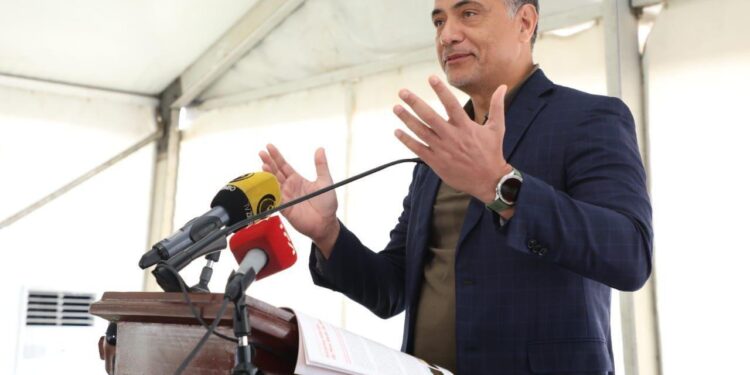Angola’s Minister of Energy and Water, João Baptista Borges, announced at the closing of the 15th International Infrastructure Investment and Construction Forum (IIICF) in Macau, China, that the country is advancing in its electricity supply, with a growing focus on renewable energy sources, although significant challenges remain.
Speaking at the forum, which revolved around the theme “Green Innovation – Digital Connectivity,” Minister Borges addressed the topic of Energy Transition. He emphasized the need for new energy resources, innovative strategies, and objectives to drive the development of high-quality productive sectors.
Borges acknowledged that Angola recognizes climate change as one of the most critical global issues, impacting both economic and social aspects of nations. To address this, Angola has approved the National Climate Change Strategy for 2021-2035, which aims to meet the objectives of the Paris Agreement and align with key sustainable development frameworks such as the Africa Agenda 2063 and the United Nations’ Sustainable Development Goals.
The minister reaffirmed Angola’s dedication to decreasing the carbon intensity of electricity production by 2025. He also noted initiatives in other areas such as sustainable forest management, transportation, and agriculture. Borges discussed climate resilience projects designed to protect communities and secure economic and social investments. Presently, 64% of Angola’s energy mix comes from clean sources.
The Energy Sector Action Plan for 2023-2027, which is aligned with the Agenda 2050, aims to increase the proportion of renewable energy to 72% by 2027, with a particular focus on expanding solar energy capacity and raising the national electrification rate to 50%. This endeavor will require an estimated $12 billion in investment, with significant participation from the private sector and financial institutions.
The minister also pointed to the completion of several key projects, such as solar power plants in Biópio, Luena, Baía Farta, and Saurimo, expected to be operational by 2024, along with others currently under construction. He highlighted the importance of collaboration with China, which is at the forefront of the global energy transition through investments in solar power and electromobility, which could greatly benefit Angola through investment opportunities and financing.
The forum was attended by various Angolan officials, including the Consul General of Angola in Macau and other high-ranking representatives from the Ministry of Energy and Water.





